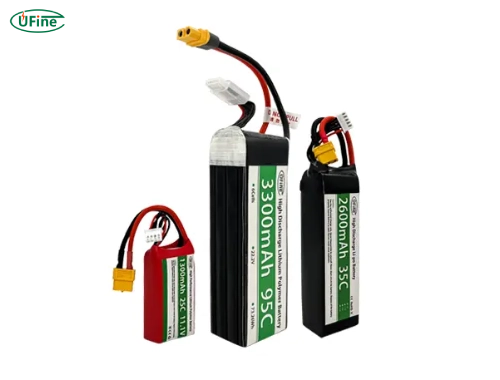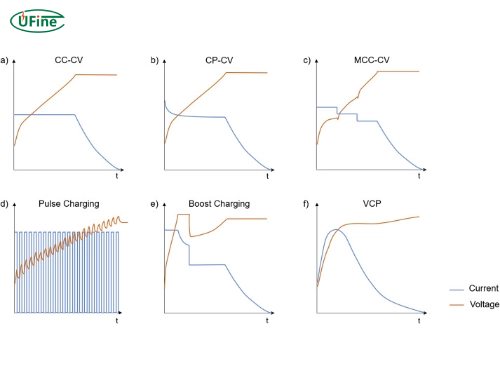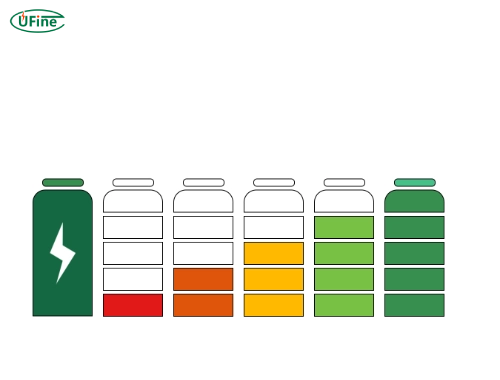In modern technology, fast-charge batteries have revolutionized how we power our devices and vehicles. These batteries are engineered to recharge at significantly higher rates than traditional batteries, making them essential for applications where time is of the essence. As the demand for quicker charging solutions grows, understanding the benefits and applications of fast-charge batteries becomes increasingly important.
Part 1. What is a fast charge battery?
A fast charge battery minimizes charging time while maximizing efficiency and safety. These batteries typically utilize lithium-ion (Li-ion) technology, which allows for rapid energy transfer through enhanced electrode designs and advanced electrolyte formulations. The relationship between fast-charge batteries and high-discharge-rate batteries is crucial; both types are engineered to handle high currents, but while fast-charge batteries excel in quick recharging, high-discharge-rate batteries focus on delivering energy rapidly during use.
Key Features of Fast Charge Batteries
- Rapid Charging Capability: Fast charge batteries can achieve up to 80% capacity in as little as 30 minutes, making them ideal for electric vehicles (EVs) and portable electronics.
- High Energy Density: These batteries store more energy in a compact design, allowing extended usage without increasing size or weight.
- Long Cycle Life: Fast charge batteries are built to endure numerous charging cycles with minimal performance degradation, ensuring longevity.
Part 2. How do fast charge batteries work?
Fast charge batteries operate on principles that optimize the movement of lithium ions within the battery structure. Here’s a deeper look into their functionality:
- Electrode Design: The electrodes in fast charge batteries are engineered to allow for rapid ion transport. Thinner electrodes can facilitate quicker charging but may compromise overall energy density. Advanced materials are being developed to enhance conductivity without sacrificing capacity.
- Electrolyte Innovations: New electrolyte formulations reduce internal resistance during charging, allowing ions to move more freely. This innovation minimizes issues such as lithium plating, which can occur when lithium ions accumulate on the anode during rapid charging.
- Smart Charging Algorithms: Modern fast charge systems utilize adaptive algorithms that adjust current and voltage based on real-time data about the battery’s state of charge. This optimization prevents overheating and prolongs battery life.
Part 3. Benefits of fast charge batteries
The advantages of fast charge batteries extend beyond mere convenience; they offer significant improvements in various aspects:
1. Time Efficiency
Fast charge batteries drastically reduce downtime for devices and vehicles that rely on them. For example, an electric vehicle can gain substantial range at a fast-charging station in just a few minutes, making long-distance travel more practical.
2. Increased Convenience
With the ability to recharge quickly, users experience less inconvenience in daily life. Whether it’s a smartphone or an electric car, the ability to plug in for a brief period can seamlessly fit into busy schedules.
3. Enhanced Performance
Fast-charge batteries often improve performance metrics, including better discharge rates and longevity, than traditional batteries. This means devices can operate at peak efficiency longer without frequent recharges.
4. Environmental Impact
Fast-charge batteries contribute to reducing carbon emissions by promoting the use of electric vehicles and renewable energy storage systems. Their quicker turnaround times can encourage more people to adopt electric solutions.
5. Economic Benefits
As technology advances and production scales up, the costs associated with fast charge batteries are expected to decrease, making them more accessible to consumers and businesses alike.
Part 4. Best uses for fast charge batteries
Fast charge batteries have found applications across various sectors due to their unique properties:
1. Electric Vehicles (EVs)
The automotive industry heavily relies on fast-charge battery technology. As rapid charging stations become more prevalent, EVs equipped with these batteries can compete with traditional gasoline vehicles in refueling time.
2. Consumer Electronics
Smartphones, laptops, and tablets increasingly utilize fast-charge batteries to give users quick power-ups throughout the day. This technology allows devices to reach significant battery levels in short periods.
3. Renewable Energy Storage
Fast-charge batteries play a vital role in renewable energy systems by enabling rapid storage and discharge capabilities for solar panels and wind turbines. This helps stabilize the energy supply during peak demand times.
4. Portable Power Tools
In construction and manufacturing, fast charge batteries are essential for powering tools that require quick recharges between uses, enhancing productivity on job sites.
5. Medical Devices
Fast charging capabilities are critical in medical equipment where downtime can affect patient care. Devices like portable ultrasound machines or emergency medical equipment benefit from this technology.
Part 5. How does fast charging impact the lifespan of lithium-ion batteries?
Fast charging has become synonymous with convenience; however, it raises questions about its impact on battery lifespan. Lithium-ion batteries experience wear due to several factors during rapid charging:
- Lithium Plating: When charged too quickly, lithium ions can accumulate on the anode surface instead of intercalating into the graphite structure, leading to lithium plating. This phenomenon reduces capacity and increases internal resistance over time.
- Heat Generation: Rapid charging generates heat within the battery cells. Excessive heat accelerates chemical reactions that can degrade battery materials and shorten lifespan.
- Cycle Life Reduction: Frequent high-rate charging may decrease overall cycle life due to increased stress on battery components. While modern lithium-ion cells are designed to handle some degree of fast charging without significant degradation, consistently exceeding optimal charging rates can lead to diminished performance over time.
Manufacturers are developing advanced thermal management systems and smart charging algorithms that adaptively control charging rates based on temperature and battery conditions to mitigate these effects.
Fast Charging vs Slow Charging: Which is Better for your Lithium Battery?
Part 6. FAQs
-
What is the main advantage of fast charge batteries?
The primary advantage is that they can recharge significantly faster than conventional batteries, reducing downtime for devices like electric vehicles and smartphones. -
How long does it take to charge a fast charge battery fully fully and quickly?
Charging times vary by device but generally range from 15 minutes to an hour for an 80% charge, depending on the battery capacity and charger specifications. -
Are fast charge batteries safe?
Yes, they are safe when designed correctly with appropriate thermal management systems; however, overheating can occur if not correctly managed during rapid charging cycles. -
Can all devices use fast charge batteries?
Not all devices are compatible with fast charging; specific hardware support is required for both the battery and charger. -
What is the relationship between high-discharge rate batteries and fast-charge batteries?
High discharge rate batteries are designed to deliver energy rapidly during use while also being capable of accepting high currents for quick recharging. This makes them suitable for applications requiring both attributes, like drones or power tools.
Related Tags:
More Articles

How to Choose the Best Floor Scrubber Battery for Commercial Cleaning?
Selecting the ideal floor scrubber battery ensures a long runtime, rapid charging, and minimal maintenance for efficient commercial cleaning operations.
Battery for Blower vs Battery for Leaf Vacuum: Which One Should You Choose?
Battery for blower vs leaf vacuum—learn the key differences in power, fit, and runtime to choose the right battery for your outdoor tool needs.
How to Choose the Right Battery for Blower?
Choosing the right blower battery? Consider voltage, capacity, chemistry & usage. This guide helps match the best battery for peak performance.
How to Choose the Best Insulated Battery Box for Lithium Batteries?
Choosing the Best Insulated Battery Box for Lithium Batteries? Discover key factors such as size, material, and safety for optimal protection and performance.
7 Critical Elements on a Lithium Battery Shipping Label
What must be on a lithium battery shipping label? Learn 7 key elements to ensure safety, legal compliance, and correct handling across all transport modes.






